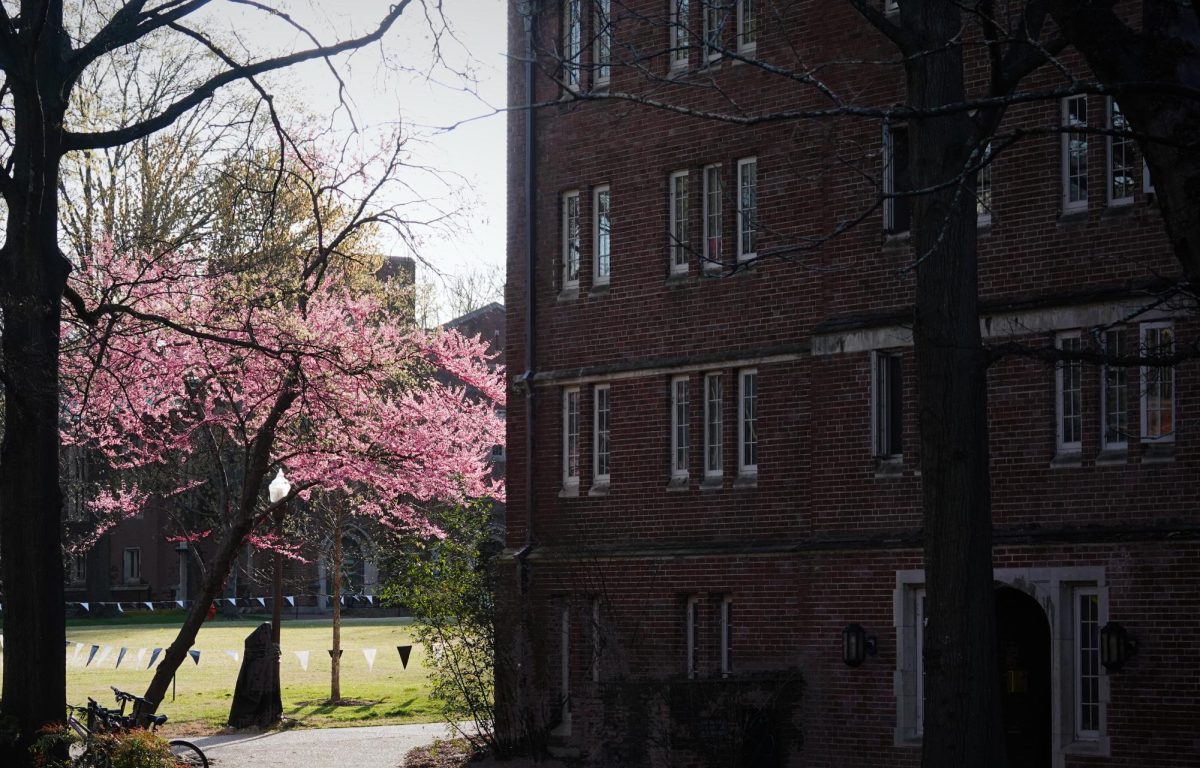Alumni and faculty members penned open letters expressing solidarity with Vanderbilt’s pro-Israel Jewish community and criticizing efforts to bring the Boycott, Divestment and Sanctions movement to campus.
The letters have a combined total of 124 signatories as of publication — 35 faculty and 89 alumni. Vanderbilt Jewish Alumni reported that at least an additional 15 alumni have signed the letter but have not yet been added to the public-facing petition.
Faculty letter: BDS concerns, Community Creed
The faculty letter was posted online on March 31, one week after faculty shared another open letter with The Hustler condemning the university’s removal of a BDS amendment from the VSG ballot due to legal concerns. The first letter discusses perceived disparities between Vanderbilt’s pro-Israel Jewish groups and other student organizations.
“We are troubled, however, at the notion of a student body that is 80-85% non-Jewish voting to force Jewish student organizations to participate in a boycott of Israel in order to be allowed to utilize student activity fee funding,” the letter reads.
In its original form, the amendment would have prevented all VSG funding — including co-sponsorships from its $200,000 budget and the $1.8 million Student Services Fee budget it oversees — from being used on BDS organic and consumer target companies. The wording was later changed to apply only to VSG’s direct budget. Then-VSG President Sam Sliman, a senior, said this change was made due to the infeasibility of reviewing student organizations’ spending behavior “in that level of detail.” Sliman said the amendment petitioners agreed to the language change, though a revised version of the amendment was never made publicly available.
Associate Professor of Jewish Studies and Sociology Dr. Shaul Kelner, a faculty letter signee, said the change in wording to exclude the Student Service Fee budget does not address the pro-Israel Jewish community’s fundamental concerns with BDS.
“In this [faculty] letter, we are telling our Jewish students that we see them, we hear them and we recognize that the boycott campaign has not treated them with equity, inclusivity or respect,” Kelner said in an email to The Hustler.
The faculty letter also cites the historical usage of boycotts against Jews as a primary source of their concern.
“For Jews, boycotts are no neutral symbol. They evoke a long and dark history of policies to isolate and exclude Jews,” the letter reads. “We sense with increasing concern that our campus discourse has ignored or minimized this history, even as a proposed student government policy risks reproducing a form of oppression that has specifically harmed Jews in the past.”
In a March 3 email to The Hustler, Vanderbilt Divest Coalition organizers emphasized the distinction between a boycott of Israel and that of the movement’s consumer and organic boycott targets.
“The petition does not call for removal of funding for any student groups with ties to Israel or on the basis of Israeli or Jewish identity,” VDC said. “Rather it would prevent VSG and student groups who hold events in collaboration with VSG from purchasing items from the specific companies identified by the BDS movement.”
Kelner called this clarification “a distinction without a difference.”
“BDS supporters are free to draw distinctions for themselves to guide their own practice. But that’s different from imposing it on the Jewish chaplaincies,” Kelner said. “It seems pretty clear that Hillel and Chabad don’t want to participate in boycotting Israel at all, in any way. That is their right. Our letter is saying that they shouldn’t be forced to.”
The faculty members also emphasize the importance of maintaining the Vanderbilt Community Creed’s values of openness and respect, which they assert on-campus BDS efforts violate.
“The Community Creed should still matter, even when passions are high,” Kelner said. “The faculty who signed the letter take diverse stances on the Israeli-Palestinian conflict. And I expect that they take diverse stances on BDS too. This letter is not about what’s going on thousands of miles away. It’s about how we live in a diverse community with each other here.”
Vanderbilt Chabad and Hillel expressed gratitude for the faculty letter in a joint April 9 Instagram post.
“The Jewish community at Vanderbilt thanks the Vanderbilt faculty members who signed the letter supporting fair treatment of Jewish students and organizations at Vanderbilt and explaining why a vote on BDS at Vanderbilt is inherently misplaced and offensive,” the groups said.
Alumni letter: Supporting Jewish students, call for civil discourse
The alumni letter, published on Change.org by Vanderbilt Jewish Alumni on April 8 and on Google Sites on April 11, similarly criticizes BDS advocates for contributing to a “hostile campus environment” by calling on the university to divest from companies “simply because of their national origin.” The Vanderbilt Divest Coalition’s efforts on campus have been limited to calls for only VSG to boycott target companies complicit in Israel’s occupation of and human rights violations against Palestinians. Vanderbilt Alumni for Palestine has initiated a push for the university to divest its $9.7 billion endowment from “any company involved in apartheid.”
In an interview with The Hustler, Olivia Sinrich (B.A. ‘21), one of the alumni letter’s signees, called the BDS movement “inherently discriminatory” to Jewish and Israeli people. She referenced Kosher food production in Israel and Israeli companies’ employment of both Israelis and Palestinians. She further pointed to the fact that the BDS movement’s founder, Omar Barghouti, has vocally opposed calls for a two-state solution, which she finds antithetical to peace.
“A two-state solution is something that is so broadly supported for peace across the world, so, if ultimately if peace is not the goal of this movement, why are we pushing it on campus?” Sinrich said.
Support for a two-state solution among Israelis and Palestinians has declined in recent years, prior to Hamas’s Oct. 7 attacks. In 2023, the Pew Research Center found that 35% of Israelis — down from 50% in 2013 — think Israel and a Palestinian state can peacefully coexist, while Gallup reported that support for a Palestinian state alongside an independent Israel decreased among Palestinians from nearly 60% in 2013 to 24% in 2023.
Addressed to students, faculty and alumni, the alumni letter also criticizes the perceived lack of broader “empathy and openness” on campus. It specifically cites the denial of Vanderbilt’s chapter of Students Supporting Israel into the Multicultural Leadership Council.
“Our alma mater, like other campuses across the world, devolved into an environment that rejected receptive conversation, space for others’ perspectives and even Jewish and Israeli students themselves,” the letter reads.
Sinrich expressed particular concern for Vanderbilt students of Israeli origin or with immediate ties to Israel.
“No matter what your views on the conflict are, feeling like you don’t belong because of your national origin is not okay,” Sinrich said.
The letter further praises Chancellor Daniel Diermeier for his push to foster “understanding, acceptance of individuals from all backgrounds and equity.” Sinrich stated that she believes high tensions on campus have stifled opportunities for cross-cultural dialogue and urged BDS advocates to turn to conversation and education instead of perceived “xenophobia toward Israelis and Jewish groups.”
“There’s a real pain and suffering that they [Palestinians] as a collective have experienced and are currently experiencing, and it’s important that the global community…and…the Jewish community know this — and vice versa regarding the trauma that Oct. 7 and its aftermath caused for global Jewry,” Sinrich said. “I would recommend…the university to create space for those groups to share their own stories so they can create understanding and…find specific issues that they can work on together that are humanitarian in nature.”
Sinrich also emphasized the commonalities between Israelis and Palestinians.
“We both ultimately view our peoples as deeply connected to that land,” Sinrich said. “The Jewish people view Israel as our indigenous homeland; the Palestinian people view it similarly. We both share this intense love for the same place — it’s the same hills, the same sea and, a lot of times, the same cities — and I think that’s something to connect on, rather than to divide.”
The letter concludes with notes of advice and support to Vanderbilt community members, including adhering to one’s values, caring for mental health and building bridges across divides.
“To the broader Vanderbilt community, we have a simple ask: choose kindness, along with the chance to hear out another’s struggles, experiences and viewpoints,” the letter reads. “To Jewish students, faculty, alumni, friends and family, thank you for your bravery, commitment to civil discourse and moral clarity. We are with you.”
This story was originally published on The Vanderbilt Hustler on April 11, 2024.

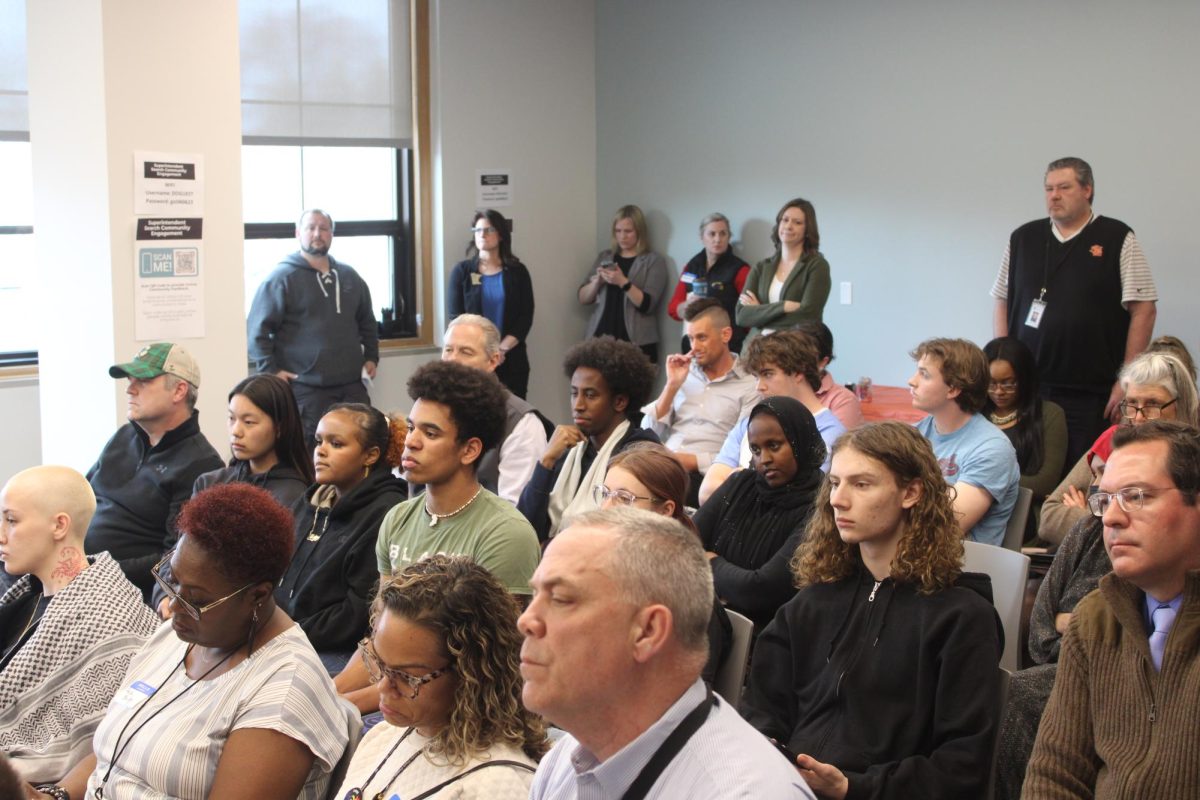
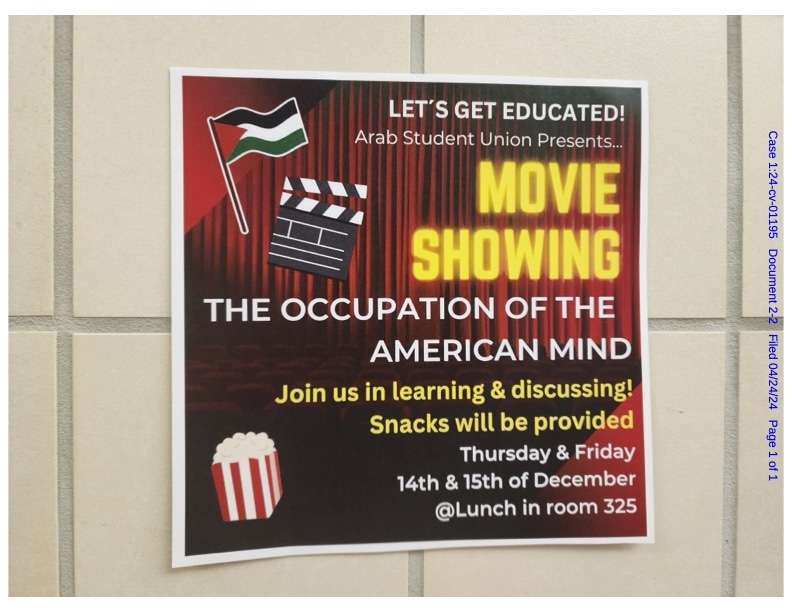
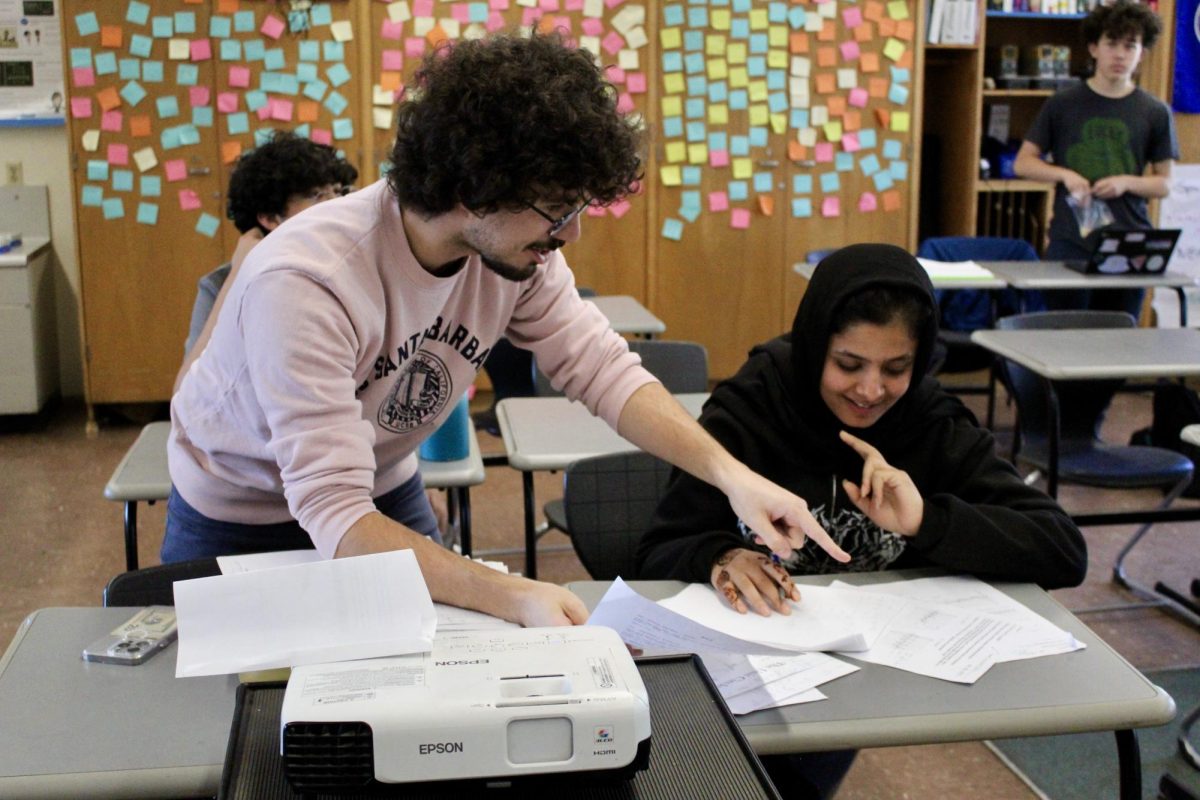







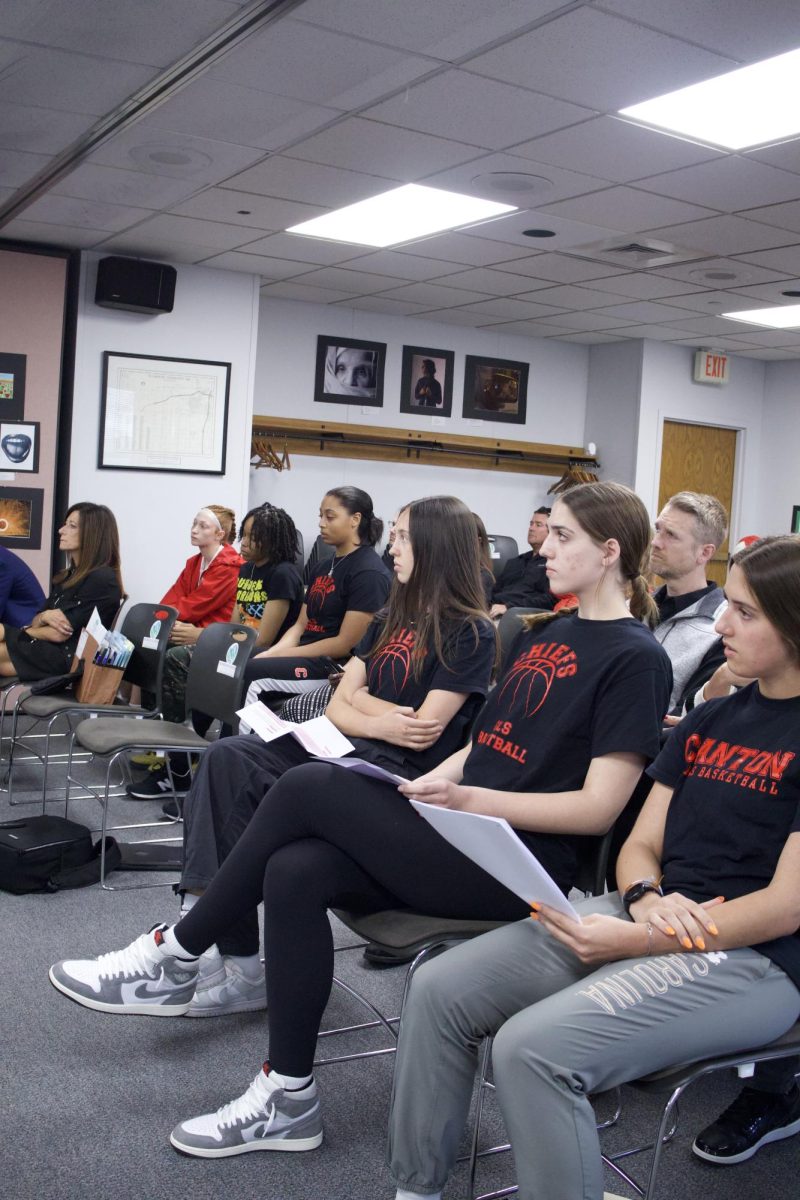



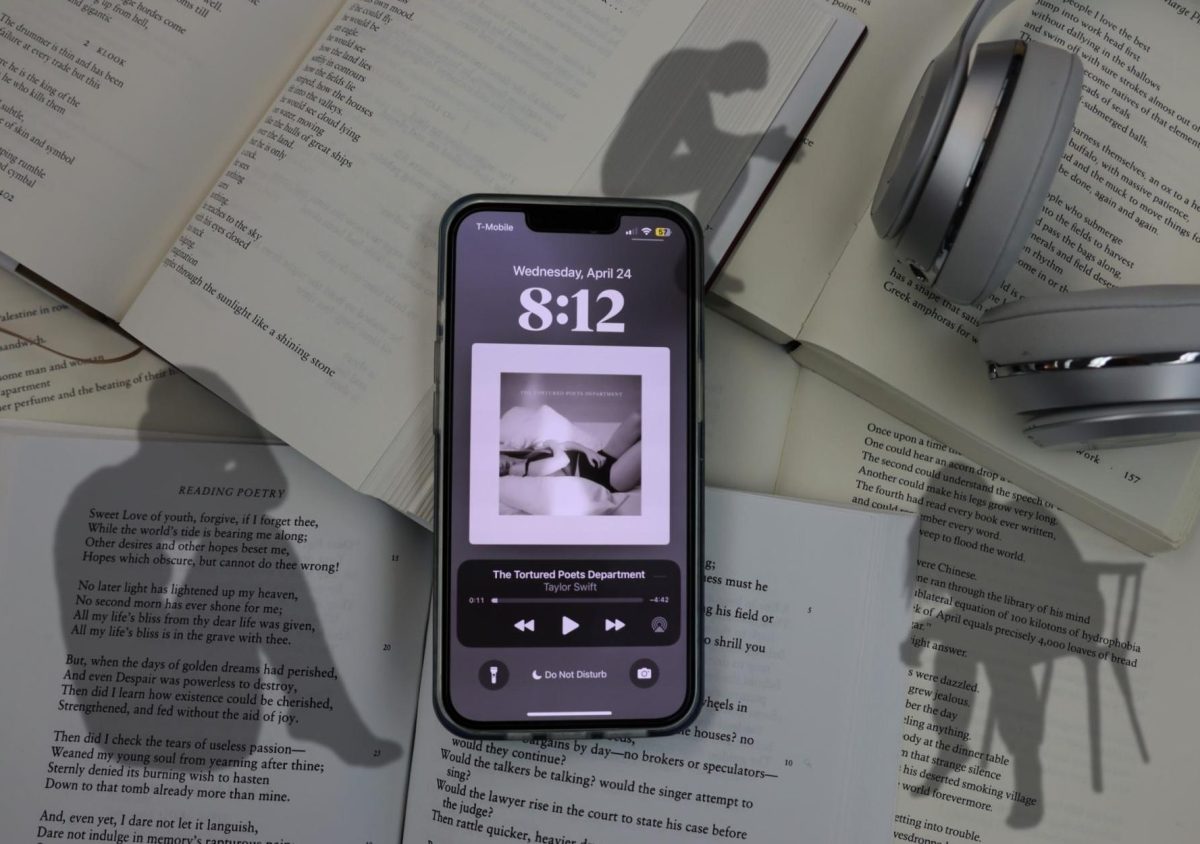














![IN THE SPOTLIGHT: Junior Zalie Mann performs “I Love to Cry at Weddings,” an ensemble piece from the fall musical Sweet Charity, to prospective students during the Fine Arts Showcase on Wednesday, Nov. 8. The showcase is a compilation of performances and demonstrations from each fine arts strand offered at McCallum. This show is put on so that prospective students can see if they are interested in joining an academy or major.
Sweet Charity originally ran the weekends of Sept. 28 and Oct. 8, but made a comeback for the Fine Arts Showcase.
“[Being at the front in the spotlight] is my favorite part of the whole dance, so I was super happy to be on stage performing and smiling at the audience,” Mann said.
Mann performed in both the musical theatre performance and dance excerpt “Ethereal,” a contemporary piece choreographed by the new dance director Terrance Carson, in the showcase. With also being a dance ambassador, Mann got to talk about what MAC dance is, her experience and answer any questions the aspiring arts majors and their parents may have.
Caption by Maya Tackett.](https://bestofsno.com/wp-content/uploads/2024/02/53321803427_47cd17fe70_o-1-1200x800.jpg)
![SPREADING THE JOY: Sophomore Chim Becker poses with sophomores Cozbi Sims and Lou Davidson while manning a table at the Hispanic Heritage treat day during lunch of Sept 28. Becker is a part of the students of color alliance, who put together the activity to raise money for their club.
“It [the stand] was really fun because McCallum has a lot of latino kids,” Becker said. “And I think it was nice that I could share the stuff that I usually just have at home with people who have never tried it before.”
Becker recognizes the importance of celebrating Hispanic heritage at Mac.
“I think its important to celebrate,” Becker said. “Because our culture is awesome and super cool, and everybody should be able to learn about other cultures of the world.”
Caption by JoJo Barnard.](https://bestofsno.com/wp-content/uploads/2024/01/53221601352_4127a81c41_o-1200x675.jpg)





